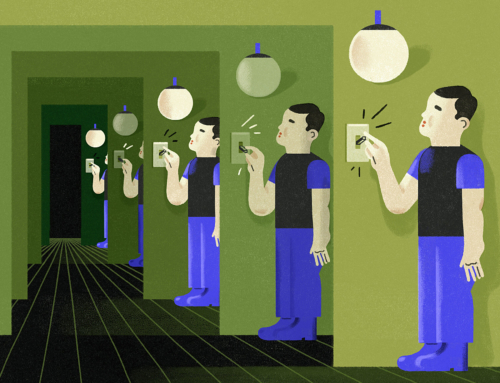MENTAL HEALTH
IN THE WORKPLACE

It is estimated that 1 in 6 people of working age will suffer from a mental illness. Further to this, one sixth of the population will suffer from poor mental health because of symptoms such as troubled sleep, excessive worry, and fatigue.
Whilst someone may experience issues with their mental health, it does not mean that they have a mental illness,
however, these symptoms certainly affect a person’s ability to function at work.
Research suggests that working can be a benefit to an individual’s wellbeing, especially if presented with a healthy work environment. Research also suggests that working people often identify work as providing a sense of purpose, a feeling of acceptance and development opportunities, which can be pivotal in bettering a person’s mental health.
Most mental health conditions that are seen in the workplace are treatable and at most times, preventable too. There are many things that both employees and employers can do to prevent poor mental health being developed in the workplace.
Tips for managing your mental health at work:
 Transparency & Clear Communication
Transparency & Clear Communication
Transparency and clear communication between both employers and employees, helps to minimise stress in the workplace. Providing clear information and having a strong communication strategy are important factors in creating a healthy workplace.
Workload Management and Support
If staff are concerned about their ability to manage their workload or adjust to changes in the workplace, it can cause anxiety. Regular check ins and workload monitoring can help with ensuring that staff feel supported in managing their workload. This can also apply to an employee, if you feel overwhelmed, reach out and ask for help from management or co-workers. If you notice a co-worker is struggling and could use some help, if you have the means, ask them to what you can do to help them with managing their workload.
 Reduce Overworking
Reduce Overworking
Overworking was taken to a new level with the introduction of working from home. Having access to work at all times blurs the boundaries between work and home life. This can cause unhealthy habits which negatively affect our mental health. Here are some ways to reduce over-working:
Detach from Work at the End of the Day
If you’re working from home, try and have a separate workspace that doesn’t interfere with the areas of your house you use to relax such as a bedroom or lounge room and only work in this space. This sets a clear boundary between workspace and other spaces of your home. At the end of each day, log out of all your systems and pack away your work equipment, say goodbye to colleagues (if working onsite), etc. This will assert that it’s the end of the workday, you can now enjoy your personal time and leave work behind.
 Establish Work/Life Balance
Establish Work/Life Balance
Take time off:
Use your leave days, plan holidays, schedule regular breaks.
Time off promotes rest and allows you to recharge, leading to increased productivity upon return.
Take Your Breaks:
There are OH&S rules in place for a reason. Taking breaks is vital to sustaining your health and wellbeing,
as well as maintaining productivity throughout the day.
Set boundaries:
Work out your unhelpful habits and set boundaries around these. For example, if you tend to over commit yourself to work, set a boundary which limits how much work you take on at a time. Set boundaries around work times. Avoid starting early or finishing late unless necessary.






